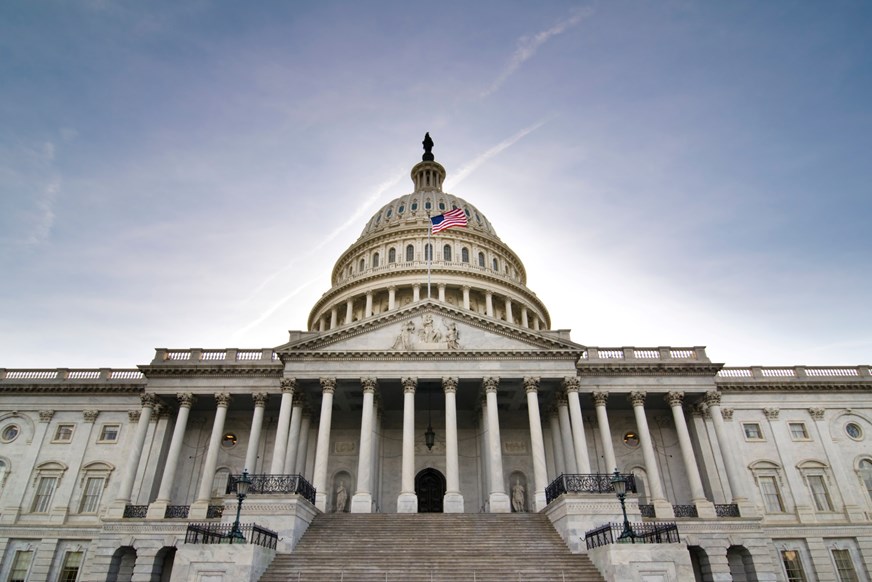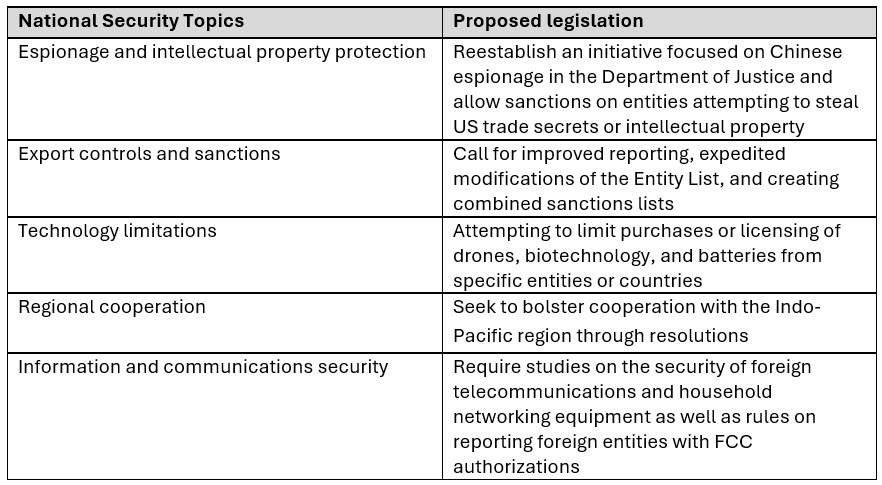
Search our articles
"China Week" does not address key trade issues

Key Insights:
- What's happening: A list of proposed legislation to be brought to a vote in the US House of Representatives was released last week. Several anticipated pieces of legislation - including changes to de minimis duties and outbound investment rules - were missing from the list.
- Why it matters: The series of bills address several issues related to trade and national security that impact companies, including intellectual property protections and restrictions on imports and licensing. Broader efforts to address key trade issues or legislation with contentious implementation plans remain on hold until after the election, however.
- What happens next: Many of the proposed pieces of legislation will face simple votes, potentially allowing relatively quick passage by the House. More substantial actions by Congress will likely remain tabled through this session of Congress, leaving these issues to be addressed by the new Congress in 2025.
ANALYSIS
Speaker of the House Mike Johnson (R-LA) announced before the August recess that he would seek to pass several pieces of China-focused legislation over the course of what he dubbed “China Week.” China-US relations continue to be at the center of many foreign-policy discussions in the lead up to the November election and the House is seeking to make a final push on a variety of bills that proponents argue will shore up US national security.
Most of the three dozen pieces of legislation slated to be addressed this week will face simple floor votes and may be processed quickly. Nonetheless Congress has limited time to act on this legislation in order to meet Johnson’s end of year goal.

China Week topics related to national security, and corresponding legislation proposed
Among the most substantial actions Johnson sought to address included votes on both outbound investment screening and the de minimis thresholds. Earlier this week, the list of legislation to be considered was released publicly, but both measures were missing from the list. The bi-partisan agreement and combined action across Congress and the Executive on addressing broadly defined national security concerns through a wide variety of tools stands; however, the lack of inclusion of even a limited effort to address de minimis shows the difficulties in reaching bi-partisan consensus on implementation.
There is limited amount of time remaining in the session to address these bills as well as a new government spending bill to avoid an October 1st government shutdown. It is unlikely that trade policy issues with less consensus will reach a vote this year, leaving a variety of more controversial issues dependent on the outcome of the 2024 presidential and congressional elections.
Some efforts, such as the much-delayed revival of the Generalized System of Preferences (GSP) trade program or the reauthorization of the African Growth and Opportunity Act (AGOA), have received attention as existing options for improving market access to the US from developed countries at a time when new free trade agreements are curtailed by lack of public support. Both pieces of legislation have received some additional attention as tools to shore up US businesses and influence in regions where Chinese involvement has continued to expand.
Topics: North America, Asia, Trade, Politics

Written by Onyx Strategic Insights

